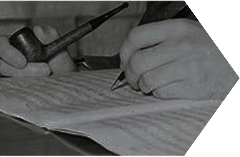
Samuel Barber (1910–1981) was a prominent American composer known for his expressive lyricism and Romantic style within 20th-century classical music. Trained at the Curtis Institute of Music, he favored traditional harmonic language and formal structures, though he incorporated modernist elements such as dissonance and chromaticism in later works.
Barber gained early recognition with pieces like the overture to The School for Scandal and achieved lasting fame with Adagio for Strings, an arrangement of the slow movement from his String Quartet, famously conducted by Arturo Toscanini. His oeuvre includes symphonies, concertos, operas—most notably Vanessa, which won a Pulitzer Prize—and vocal works characterized by emotional depth and craftsmanship.
Despite some setbacks, including the failure of his opera Antony and Cleopatra, Barber remained a significant figure in American music, blending European influences with a distinctly personal voice.


Despite facing challenges later in life, Barber’s music remains a cornerstone of 20th-century classical repertoire. His works continue to be performed worldwide, celebrated for their emotional resonance and impeccable craftsmanship.




Born in West Chester, Pennsylvania, Barber showed musical talent early, composing his first piece at age seven. He studied at the Curtis Institute of Music, where he honed his skills in piano, voice, composition, and conducting. It was here that he met Gian Carlo Menotti, his lifelong partner and collaborator.
Barber’s career was marked by significant achievements, including Adagio for Strings, premiered by Arturo Toscanini in 1938, and his operas Vanessa and Antony and Cleopatra. He won two Pulitzer Prizes and numerous accolades for compositions that balanced Romantic lyricism with innovative techniques.


As for my own music, I've never written a book about it. I'm not pedagogical... When I write an abstract piano sonata or a concerto, I write what I feel. I'm not a self-conscious composer.



Originally the second movement of his String Quartet, this piece is Barber’s most famous and emotionally powerful work, widely performed and deeply associated with solemn and reflective occasions.
A staple of the violin repertoire, this concerto features two lyrical, dreamlike movements followed by a fiery, rhythmically complex finale, showcasing Barber’s blend of Romantic lyricism and modern elements.
A lyrical setting for soprano and orchestra of a prose text by James Agee, this work beautifully captures the nostalgic and idyllic atmosphere of a summer afternoon in Tennessee.

I just go on doing, as they say, my thing. I believe this takes a certain courage.


I am not interested in sailing the Atlantic. I would rather set fire to a piano.

When I write an abstract piano sonata or a concerto, I write what I feel. I'm not a self-conscious composer.

